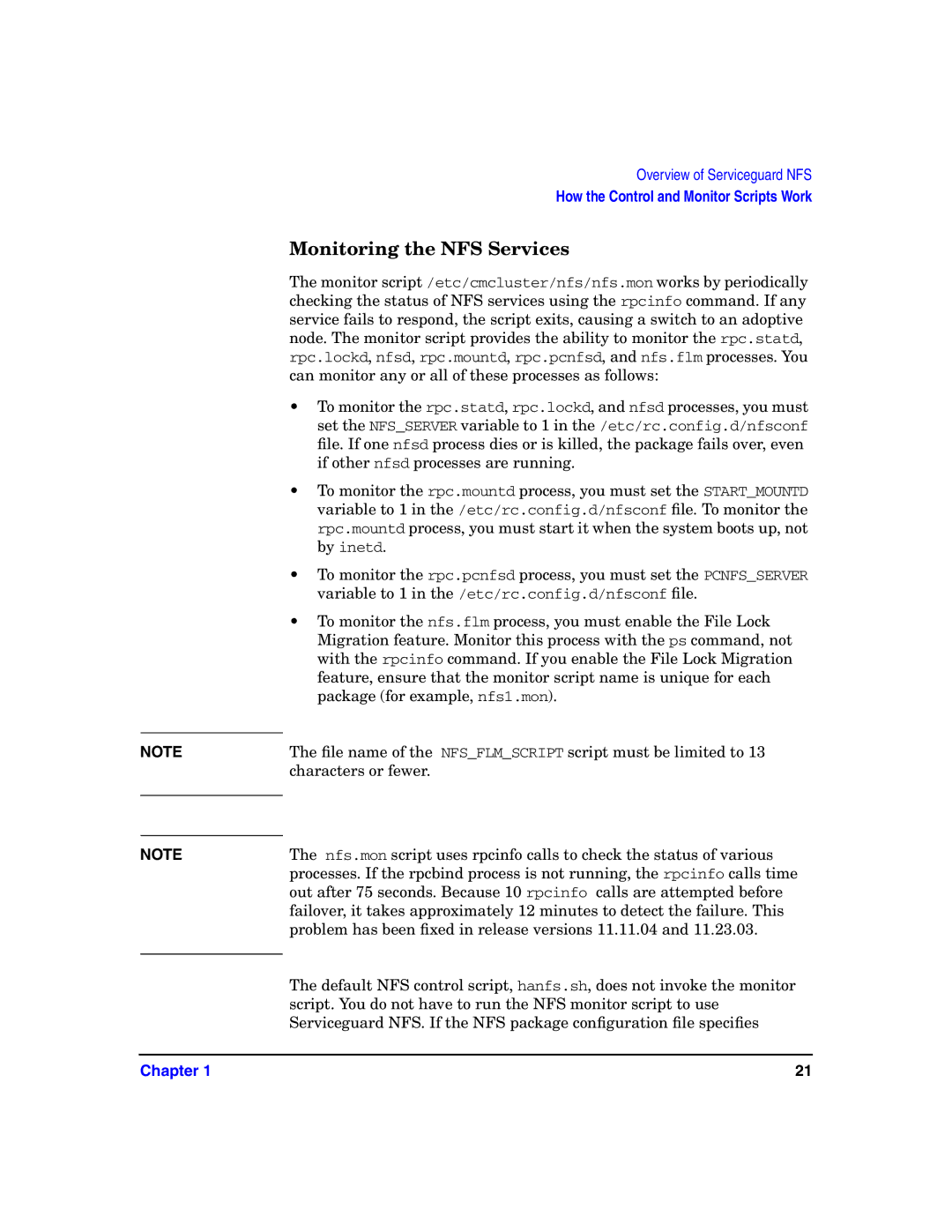
NOTE
NOTE
Overview of Serviceguard NFS
How the Control and Monitor Scripts Work
Monitoring the NFS Services
The monitor script /etc/cmcluster/nfs/nfs.mon works by periodically checking the status of NFS services using the rpcinfo command. If any service fails to respond, the script exits, causing a switch to an adoptive node. The monitor script provides the ability to monitor the rpc.statd, rpc.lockd, nfsd, rpc.mountd, rpc.pcnfsd, and nfs.flm processes. You can monitor any or all of these processes as follows:
•To monitor the rpc.statd, rpc.lockd, and nfsd processes, you must set the NFS_SERVER variable to 1 in the /etc/rc.config.d/nfsconf
file. If one nfsd process dies or is killed, the package fails over, even if other nfsd processes are running.
•To monitor the rpc.mountd process, you must set the START_MOUNTD variable to 1 in the /etc/rc.config.d/nfsconf file. To monitor the rpc.mountd process, you must start it when the system boots up, not by inetd.
•To monitor the rpc.pcnfsd process, you must set the PCNFS_SERVER variable to 1 in the /etc/rc.config.d/nfsconf file.
•To monitor the nfs.flm process, you must enable the File Lock Migration feature. Monitor this process with the ps command, not with the rpcinfo command. If you enable the File Lock Migration feature, ensure that the monitor script name is unique for each package (for example, nfs1.mon).
The file name of the NFS_FLM_SCRIPT script must be limited to 13 characters or fewer.
The nfs.mon script uses rpcinfo calls to check the status of various processes. If the rpcbind process is not running, the rpcinfo calls time out after 75 seconds. Because 10 rpcinfo calls are attempted before failover, it takes approximately 12 minutes to detect the failure. This problem has been fixed in release versions 11.11.04 and 11.23.03.
The default NFS control script, hanfs.sh, does not invoke the monitor script. You do not have to run the NFS monitor script to use Serviceguard NFS. If the NFS package configuration file specifies
Chapter 1 | 21 |
